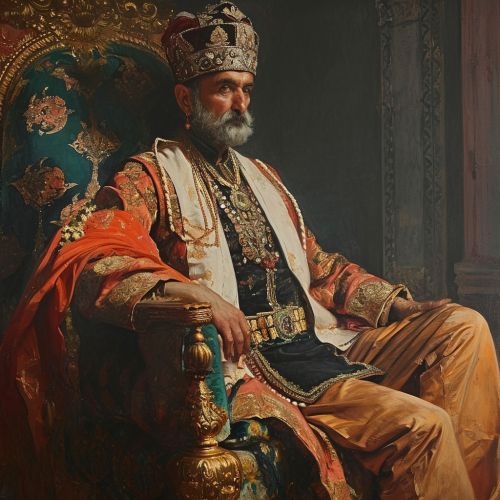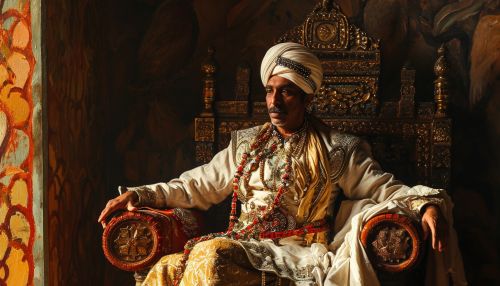Muhammad Ali Khan Wallajah
Early Life
Muhammad Ali Khan Wallajah was born in 1717 to Anwar-ud-din Muhammad Khan, the Nawab of Carnatic, and his wife Fakhr un-nissa Begum. He was the eldest son and was groomed from an early age to succeed his father as the Nawab. He was educated in the traditional Islamic sciences, as well as Persian literature and the art of warfare.
Accession to the Throne
Upon the death of his father in 1749, Muhammad Ali Khan Wallajah ascended to the throne of the Carnatic. His reign was marked by a series of wars with the Marathas, the French, and the British. Despite these challenges, he was able to maintain his rule and expand his territories.
Relations with the British
Muhammad Ali Khan Wallajah had a complex relationship with the British East India Company. Initially, he sought their support to secure his throne against the French and Marathas. However, as the British influence grew in the region, he found himself increasingly at odds with them. Despite this, he maintained a cordial relationship with the British officials and was able to negotiate several treaties that preserved his autonomy.
Administration and Reforms
As a ruler, Muhammad Ali Khan Wallajah was known for his administrative reforms. He centralized the administration, improved the revenue collection system, and promoted trade and agriculture. He also patronized arts and literature, and his court was a hub of cultural activities.
Death and Legacy
Muhammad Ali Khan Wallajah died in 1795, leaving behind a legacy of a strong and stable rule. His reign marked a significant period in the history of the Carnatic, and his administrative reforms laid the foundation for the modern administrative system in the region.


